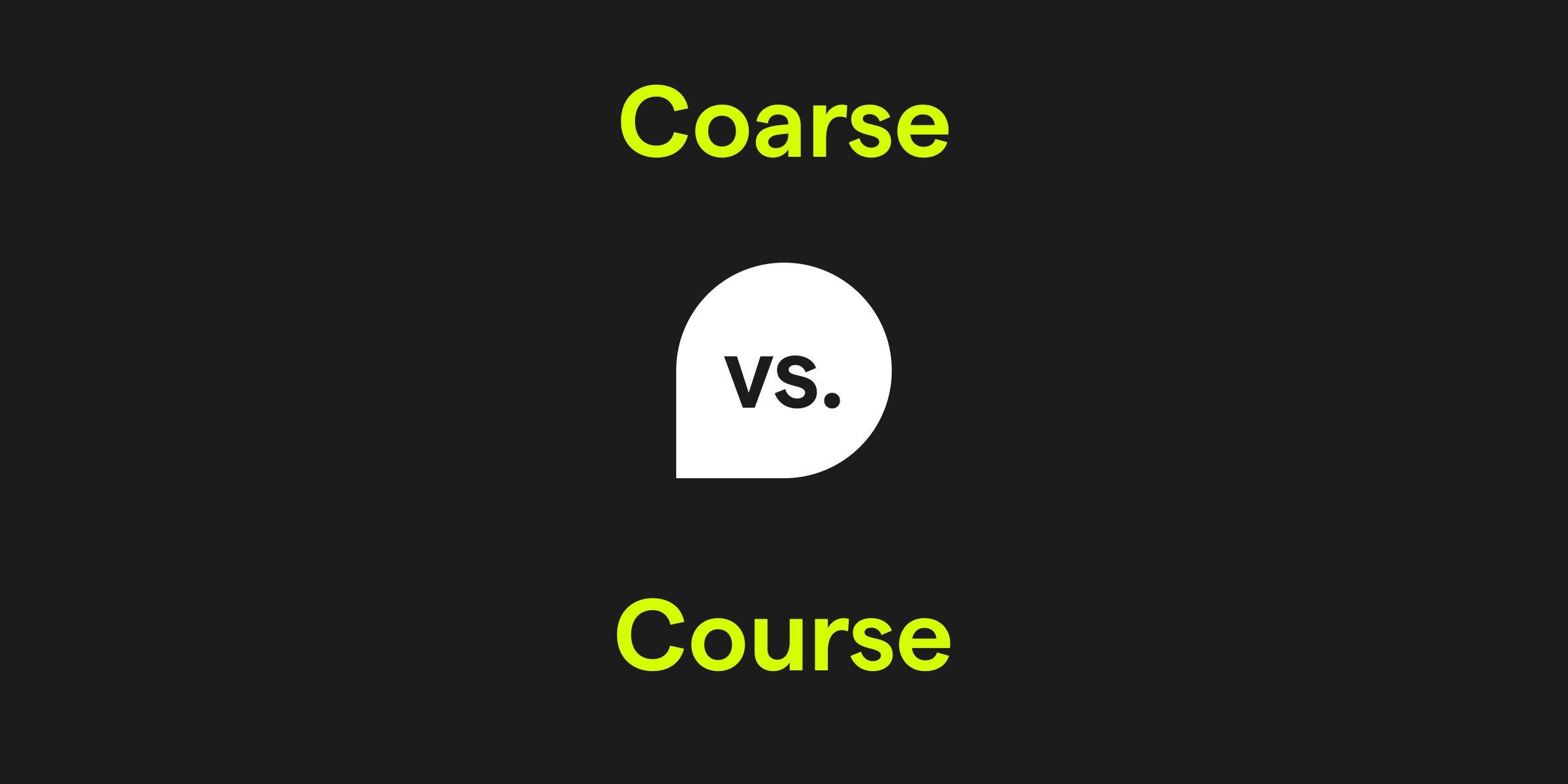Coarse vs. Course: What's the Difference?
The words coarse and course are homophones, which means they're pronounced the same but have different meanings and spellings. Coarse is typically used to describe a rough texture or a lack of refinement in detail. 'Course,' on the other hand, refers to the path or direction something follows or can pertain to a series of lectures or lessons on a particular subject.

How do you use the word coarse in a sentence?
The word coarse is commonly used when referring to materials, textures, or expressions that are rough or abrasive. It can describe physical items like fabric or grains of sand, as well as abstract concepts such as humor or language. Coarse indicates a certain harshness or rawness to the subject at hand.
Examples of coarse in a sentence
- The burlap was too coarse to use as a dress material.
- His coarse jokes were not appreciated in such a formal setting.
- She preferred coarse bread for its rustic texture and flavor.
How do you use the word course in a sentence?
The word course is versatile, often used to refer to the trajectory or progression of something. In educational contexts, it denotes structured learning in the form of classes. Course may also be used in expressions about life's progression or part of a meal in fine dining.
Examples of course in a sentence
- The river changed its course after the heavy rains.
- She enrolled in an advanced physics course to complete her major.
- For the final course, the chef prepared a delicate pear tart.
Coarse and course definition, parts of speech, and pronunciation
Coarse definition:
Coarse is an adjective that describes a rough or rugged texture, or a crude and unrefined quality.
Coarse parts of speech:
Coarse pronunciation:
Coarse is pronounced as /kɔːrs/, with a long 'o' sound followed by a hard 'r'.
Course definition:
Course can be a noun referring to the direction or route taken, a series of lectures or studies, or a part of a meal. It also acts as a verb meaning to proceed along a path.
Course parts of speech:
Course pronunciation:
Course is pronounced as /kɔːs/, identical to 'coarse'.
Coarse is an adjective that describes a rough or rugged texture, or a crude and unrefined quality.
Coarse parts of speech:
- As an adjective: The coarse fabric chafed against her skin.
Coarse pronunciation:
Coarse is pronounced as /kɔːrs/, with a long 'o' sound followed by a hard 'r'.
Course definition:
Course can be a noun referring to the direction or route taken, a series of lectures or studies, or a part of a meal. It also acts as a verb meaning to proceed along a path.
Course parts of speech:
- As a noun (path): The marathon course was marked with blue signs.
- As a noun (class): The university offers a course in marine biology.
Course pronunciation:
Course is pronounced as /kɔːs/, identical to 'coarse'.
Coarse vs. Course in a nutshell
In summary, coarse is an adjective that applies to textures and qualities that are rough or unrefined. Course has multiple uses, primarily as a noun to describe a pathway, educational classes, or a meal section, and as a verb meaning to flow or proceed. Although they sound the same, these words serve very different purposes in the English language, with coarse relating to physical or qualitative description and course to paths, education, or meals.
Get AI Writing Assistance Wherever You Type
Make sure your vocabulary is on point and every punctuation mark is in the right place, no matter where you’re working. Grammarly works across more than 1 million websites and apps so you can improve your writing without copying, pasting, or breaking focus.

More Commonly Confused Words
Interest piqued? Pore (not pour) over other commonly confused words to help your writing reach peak (not peek) performance.